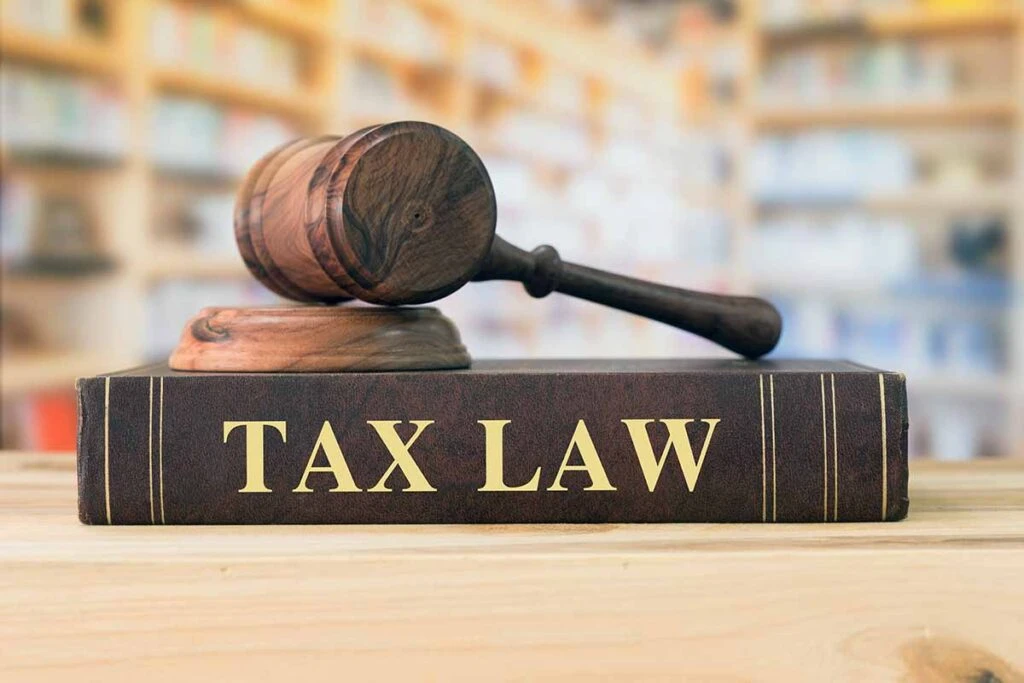Bank Levies
- What Is A Bank Account Levy or Bank Levy?
- When Does the IRS Use a Bank Levy?
- How An IRS Bank Levy Works
- Can the IRS Levy a Bank Account Without Notice?
- Wrongful and Erroneous Bank Account Levies
- How to Prevent or Release an IRS Bank Levy
- Help With IRS Bank Levy
What Is an IRS Bank Levy?

An IRS bank levy is a seizure of the money in your bank account. The IRS can seize all of the funds in the account, up to the amount you owe in back taxes, penalties, and interest.
You won’t be able to withdraw money from your account once your bank receives the levy notice from the IRS. However, you may be able to stop the levy by negotiating a payment arrangement for your tax liability.
When Does the IRS Use a Bank Levy?
The IRS will send you a bill and ask for payment before using a bank levy. You will probably receive several more IRS notices. If you don’t respond or pay your bill, the IRS may eventually send a Notice of Intent to Levy.
This notice gives you the following important rights:
- You have 30 days to request a Collection Due Process (CDP) hearing in writing.
- At the CDP hearing, you can try to avoid the levy using a variety of tax resolution strategies, such as payment plans or Offers in Compromise.
- The IRS won’t levy your assets during these 30 days. If you request a CDP hearing, the IRS will not levy your assets during the hearing process.
If you request a CDP hearing and disagree with the final determination, you have the right to take your case to Tax Court. The IRS will not attempt to levy until you withdraw your petition or the Tax Court decides on your case.
If you don’t request a CDP hearing, the IRS can issue the bank levy or another type of levy after the 30-day period expires. Your notice will outline how to appeal the levy.
How an IRS Bank Levy Works
The IRS will send a notice to your bank informing them of the levy. The bank is required to comply with the terms of the levy and will freeze the money in your account.
You won’t be able to transfer or withdraw the money subject to the levy at this point, but you do have some additional time to try to prevent the levy.
The levy will attach to the funds that are in your account at the time the bank processes the levy request. If there are deposits after this, then these funds will not be subject to the levy. A bank levy is a one time action and is not continuous. For the IRS to seize funds from the bank account again, they will need to go through the process again. Generally, the IRS does not issue bank levies back to back, but if taxes are still due after the initial seizure, it is always a possibility. You may also be at risk of garnishment of your wages, which can be hard to stop once it’s in place.
The 21-Day Rule
There is a mandatory 21-day waiting period before the bank sends the money to the IRS. Your account will remain frozen during this period.
The money will be levied from your account on the 22nd day.
The IRS may agree to withdraw the levy if you:
- Agree to a monthly payment plan to pay off your tax liability
- Pay your tax liability in full
- Prove that the levy will cause a financial hardship
- Show that the levy is improper
What Happens When Your Account is Frozen
The levy attaches to the money is your account on the day it is issued. These funds will be frozen, and you won’t be able to take this money out unless the IRS releases the levy.
If additional funds are deposited in your account after the levy attaches, these funds won’t be frozen. The IRS won’t be able to seize this money unless they issue another levy.
A bank levy is a one-time event, unlike a recurring wage garnishment. However, the IRS can issue several bank levies if you still owe tax liability after the initial levy.
When the IRS Takes the Funds
The IRS will seize the funds on the 22nd day after the levy is issued. If you owed the IRS more than the balance in your bank account, the IRS might seize all of your funds.
The seizure of funds could lead to overdrafts or fees for insufficient funds if you have any automatic payments set up on your bank account. You will also continue to be responsible for any remaining balance you owe the IRS.
Why the IRS Is Allowed to Freeze Your Bank Account
Section 6331 of the Internal Revenue Code (IRC) provides the IRS with legal authorization to levy your bank account. Part of the bank levy process includes freezing your bank account to prevent you from taking any money out before the IRS can complete the bank levy. The freezing of your bank account can work to your advantage as it gives you time to contest the levy or negotiate a tax settlement with the IRS before they actually take money from your bank account.
Can the IRS Levy a Bank Account Without Notice?
In most cases, the IRS must send you one or more notices demanding payment and send a Notice of Intent to Levy before issuing a bank levy. The IRS can levy without prior notice in rare cases, such as an IRS jeopardy levy.
The IRS issues a jeopardy levy without notice to the taxpayer. The IRS only uses jeopardy levies if the taxpayer is attempting to leave the country, hide his or her assets overseas, or if the taxpayer’s financial solvency is at risk.
In these cases, the IRS gives the taxpayer a chance to dispute the levy after it takes place.
Wrongful and Erroneous Bank Account Levies
IRS bank levies may be improper if the IRS didn’t follow procedures correctly or if the funds don’t belong to the taxpayer. You may be able to stop a wrongful or erroneous levy or seek reimbursement of improperly levied funds.
Levy on Joint or Third-Party Bank Accounts
The IRS may levy the funds in a joint account if the taxpayer can withdraw funds. Even when a non-liable account owner made the deposit, the IRS may proceed with the levy.
The non-liable third party may contact the IRS to claim ownership of the funds. The IRS may agree to release the levy if proof the third gives evidence that the funds don’t belong to the taxpayer.
If the levy has already occurred, he or she may file an administrative wrongful levy claim to seek reimbursement.
Erroneous Levies
An erroneous levy occurs whenever the IRS doesn’t follow the correct procedures when completing the levy. You may seek a levy release if the levy is erroneous for any of the following reasons:
- You weren’t given proper notice before the levy.
- The statute of limitations for collection has expired.
- The levy was premature.
- The IRS was considering or had accepted your installment agreement request or Offer in Compromise when the levy was issued.
- The levy occurred during the CDP hearing process or while your case was before the Tax Court.
- The levy occurred after you paid your tax liability in full.
You may dispute an erroneous levy before it takes place under the Collection Appeal Program (CAP). You can seek a return of erroneously levied property by filing an administrative claim.
How to Prevent or Release an IRS Bank Levy

IRS Bank Levy Help
Many tax resolution strategies can be used to prevent an IRS bank levy. You can negotiate a deal with the IRS before or during the CDP hearing. If the IRS has already sent the levy to the bank, it may be more challenging to get it released. However, you may still be able to stop the levy if you act quickly.
A tax professional can help you decide which of the following methods to use to avoid an IRS bank levy.
Collection Due Process Hearing
All of your tax resolution options are on the table during the CDP hearing. You may even be able to dispute the tax if you haven’t already had the chance to do so.
You can also appeal the decision of the CDP hearing by petitioning the Tax Court. The levy won’t be issued until the Tax Court decides your case.
Make sure you preserve your CDP rights by requesting your hearing within 30 days of the date on the Notice of Intent to Levy.
Pay In Full
If you pay your tax liability in full, the IRS won’t levy your bank account. This option all minimizes the penalties and interest you’ll be charged on your tax liability.
Installment Agreement
An IRS installment agreement is a monthly payment plan to pay off your tax liability. Flexible terms are available, and you may be given several years to pay off your balance. You must pay enough monthly to pay off the balance before the statute of limitations expires.
Once you enter into an installment agreement, the IRS will generally halt all enforced collection activities, such as bank levies.
Offers in Compromise
Offers in Compromise are a tax settlement option available to taxpayers who can’t afford to make monthly payments. You will base your offer amount on your monthly disposable income and how much equity you have in assets.
The IRS will require very detailed financial information in your Offer in Compromise application. Consult with a tax professional to determine whether you may qualify.
Hardship
You may be able to stop a levy by showing it will cause immediate financial hardship. For example, if the bank levy will cause you to miss your mortgage payment and go into foreclosure, the IRS may consider releasing the levy due to economic hardship.
You can request that the IRS classifies your account as “currently not collectible” because of financial hardship. Currently not collectible status will temporarily halt enforced collection actions by the IRS.
Identity Theft
If the bank levy is issued because someone else improperly used your Social Security number to obtain employment, you can seek a levy release due to tax identity theft. You may also seek a returned of the levied property after the levy takes place.
Help With IRS Bank Levy
If you’ve received a Notice of Intent to Levy, you have a limited time before the IRS can levy your bank account. Contact a tax professional for assistance stopping the bank levy and finding a resolution to your tax liability problems. When you’re just starting out, you need professional ANSWERS you can count on, but you don’t want to pay to get this information. This is why we offer a 100% free consultation with a Fresh Start Program tax professional.
Our honest, licensed professionals will evaluate your situation and provide you with the answers you need, so you can have the peace in mind and security of understanding your options. Chat with us live right now or call us if you prefer. We are NOT sales people, we’re true tax professionals.
We would love to help you solve your tax problem right away. If you’re ready you can
call us or chat with us by clicking on either icon below.

